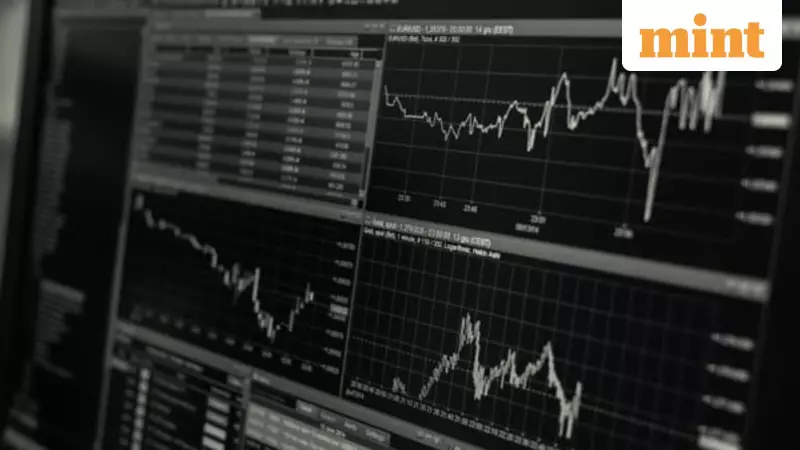
South Korean financial markets experienced significant volatility on Friday, with shares plummeting more than 2% following a sharp decline in artificial intelligence stocks on Wall Street. The benchmark KOSPI index dropped substantially as chipmaking giants led the market downturn.
Market Performance Details
The benchmark KOSPI was down 97.13 points, or 2.33%, at 4,073.50 as of 0346 GMT, reflecting widespread selling pressure across the market. The decline was primarily driven by heavy losses in the technology sector, particularly among semiconductor companies that had been market leaders.
Foreign investors emerged as net sellers, offloading shares worth approximately 1.6 trillion won during the trading session. Market breadth showed clear negative sentiment, with 599 declining issues out of 924 traded stocks, while only 273 shares managed to advance.
Chipmakers Lead Decline
Among the index heavyweights, semiconductor companies bore the brunt of the selling pressure. Samsung Electronics fell 3.60%, while its competitor SK Hynix dropped significantly by 5.88%. The technology sector's weakness mirrored overnight developments in U.S. markets, where AI-focused stocks had experienced substantial declines.
The battery sector also showed weakness, with LG Energy Solution sliding 3.51%. Automotive stocks displayed relative resilience, with Hyundai Motor declining 1.08% and sister automaker Kia Corp down 0.25%. Steelmaker POSCO Holdings also retreated, shedding 1.40% during the session.
Currency and Bond Market Movements
In currency markets, the Korean won strengthened against the U.S. dollar, quoted at 1,457.6 per dollar on the onshore settlement platform. This represented a 0.58% appreciation from its previous close at 1,466.0. The currency's gains came as South Korea's foreign exchange authorities committed to implementing measures to stabilize the won, which had recently slumped to seven-month lows.
The stabilization plan includes enlisting the support of the national pension fund to help manage currency volatility. Meanwhile, in debt markets, December futures on three-year treasury bonds lost 0.13 point to 105.62. The most liquid three-year Korean treasury bond yield rose 4.0 basis points to 2.968%, while the benchmark 10-year yield increased by 5.2 basis points to 3.323%.
Global Context and Trade Developments
The market downturn followed Wall Street's sharp decline on Thursday, where steep losses in Nvidia and other AI heavyweights reflected growing investor concerns about inflation and interest rate expectations. Central bankers' divisions about the U.S. economy's health have prompted investors to scale back expectations of near-term rate cuts.
In positive trade news, the United States and South Korea released details of a significant trade agreement on Friday. The pact includes $150 billion in Korean investment directed toward the American shipbuilding sector, with an additional $200 billion earmarked for various industrial sectors. This substantial investment commitment represents a major development in bilateral economic relations between the two nations.
The combination of global market pressures and domestic sector-specific challenges created a perfect storm for South Korean equities, though currency stabilization efforts provided some offsetting positive momentum in the foreign exchange market.






